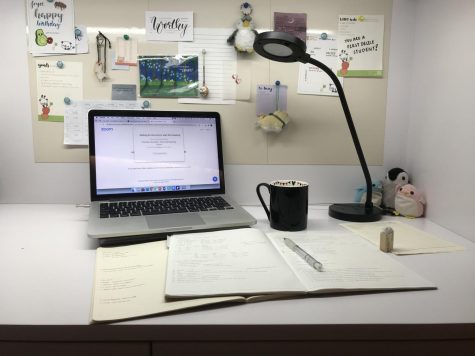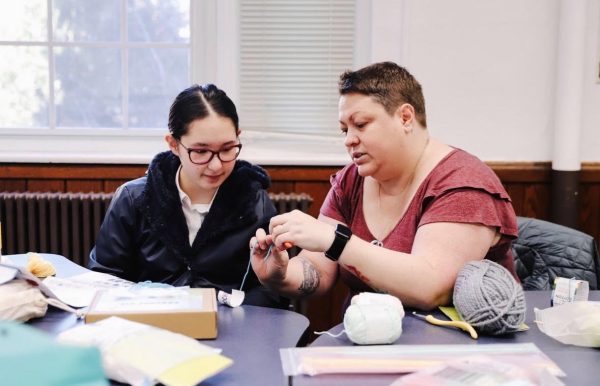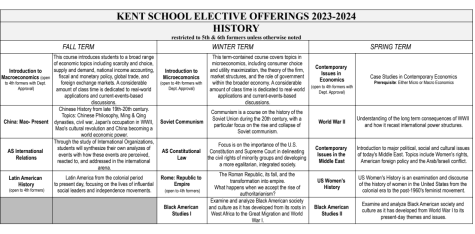Summer Reading: Invigorating the Mind
May 9, 2018
Anyone familiar with Kent School knows that all students have summer reading, which is designed to introduce the course to come and to intellectually stimulate the students over the summer. Students aim to accomplish the summer readings without teacher supervision, thereby getting a head-start to the school year. Mrs. Voorhees, head of the library, believes that it is especially important for students to have good reading habits.
Every student has to read a designated book for their form, which is chosen and used by the English department. In the past, the English department has tried assigning one book to the entire school, but found it unsuccessful due to the differences in interest and ability between the 13-year-old third formers and the 18-year-old post-graduates.
Mr. Hinman, the head of the English department, expressed satisfaction with the new system. The department has found some very well-received books, such as the The Opposite of Loneliness by Marina Keegan for the sixth form this year, and have reused them. In other instances, when the book was not well received, either by students or by teachers, the English department replaced the book and selected a new one through careful deliberation.
The other book required for all students is one chosen from a list prepared for the whole school. This book is a pleasure read, and the selections offer a host of different genres and topics. After reading the book, students fill out a brief response. The results are sent to the faculty, in order for teachers to get a better understanding of their new students, and the overall hope is that students will regard reading as a positive experience. Many books, such as Ready-Player-One by Ernest Cline, have been very popular in the past.
On top of the two required readings, students may also receive extra readings from AP classes, mostly from the history and science departments. These AP courses receive readings mostly out of necessity, as there is so much material to cover in one school year. These readings can involve topics the course may not be able to cover. For example, in AP Modern European History, students read A Journey into Michelangelo’s Rome, a book that explores the architecture and art of the Renaissance movement. Mr. Dunn, History Department Chair and teacher of AP Modern European History, has found this book to be very informative for the students. He believes it “engage[s] students with the history outside of the textbook and give[s] them pictures to explore.”
Summer reading allows students to expand their knowledge outside of the academic year. Each department has a specific vision and purpose for the summer reading, and all summer reading enriches the students as they return to Kent. Summer reading is an integral part of the Kent experience, continuing to improve as it engages students.















